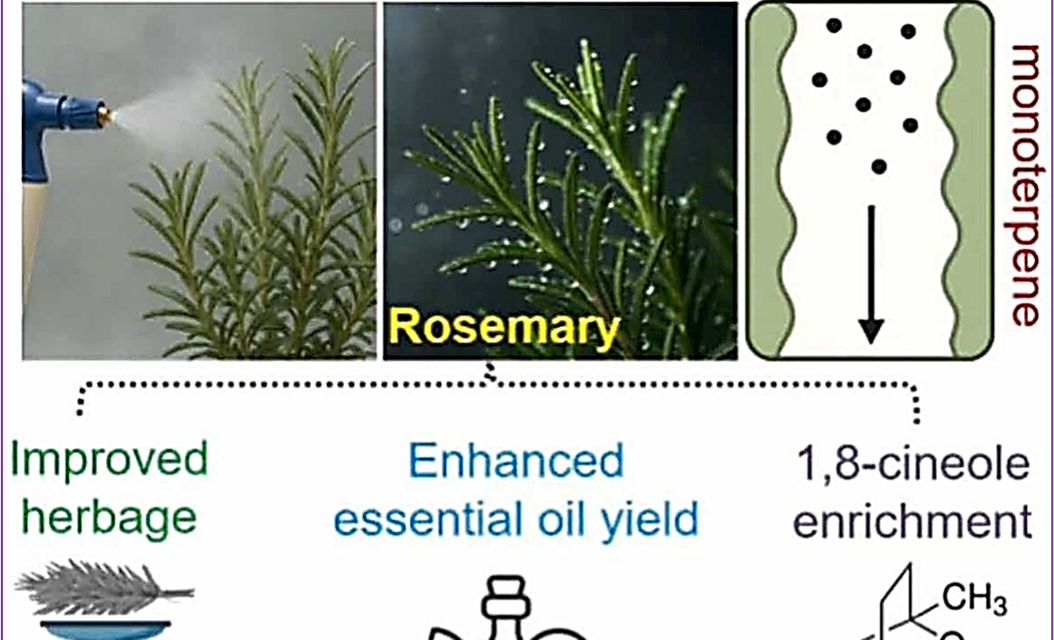Researchers, led by the University of Hyderabad and collaborating institutions, have demonstrated that the foliar application of nanosized macro- and micro- nutrients can significantly enhance Rosemary plant growth, essential oil yield, and oil quality, even at fertilizer dosages substantially lower than current recommendations.
The work, now published in the leading journal Industrial Crops & Products, is one of the principal outcomes of a Department of Biotechnology (DBT) project and a model of interdisciplinary collaboration across the Department of Plant Sciences, School of Life Sciences (Prof. Appa Rao Podile), and School of Engineering Sciences and Technology (Prof. Dr.-Ing. VVSS Srikanth).

Rosemary (Rosmarinus officinalis) is prized worldwide for its aromatic essential oil, which is extensively used in the food, cosmetic, and pharmaceutical industries. However, traditional high-input fertilizer practices pose environmental challenges and are costly. By converting commercial fertilizers into nanosized particles through design-directed mechanical milling, the surface availability of critical nutrients, including nitrogen, iron, zinc, manganese, and copper, was enhanced. As a consequence, the Rosemary plants received as little as 20–30% of the standard nutrient dosage when delivered in nanosized particle form through foliar spraying on leaves, and exhibited improved shoot and root growth, increased biomass, and higher accumulation of beneficial nutrients. The nanosized fertilizer particles enabled more efficient nutrient uptake and stimulated metabolic pathways, resulting in higher levels of 1,8-cineole, a key quality marker for Rosemary oil.
“This is a true team effort,” the group emphasizes, pointing to the balanced roles of engineering and plant sciences, as well as hands-on support from other institutes for greenhouse and material characterization. Both research groups at the University of Hyderabad collaborated closely to ensure the project’s success. This breakthrough highlights the potential for sustainable crop management where reduced fertilizer uses leads to higher yields and improved oil quality. The project investigators believe that their methodology could be applied to other commercial crops, making a significant contribution to eco-friendly agricultural practices. Their study lays the groundwork for next-generation fertilizer systems designed to maximize productivity while minimizing environmental impact.
Reference: “Low-dosage foliar application of nanosized macro- and micro- nutrients for enhanced yield of high-quality Rosemary oil,” Industrial Crops & Products 237, 122138 (2025).

